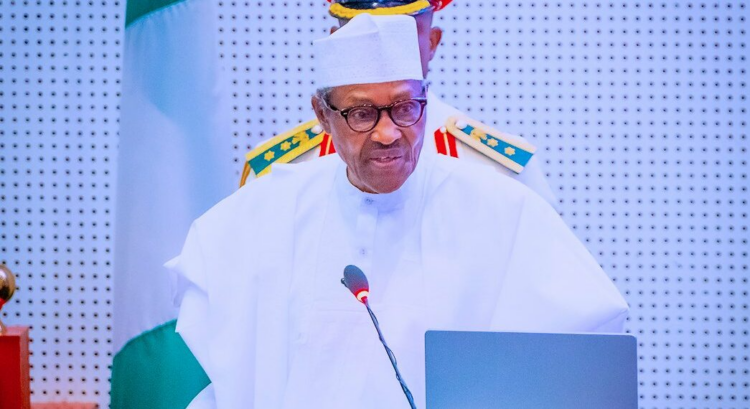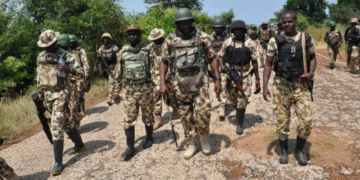Over the several months, the media team of President Muhammadu Buhari has been bombarding the public with testimonies of his achievements in government. The presidency has published information regarding his projects, aired documentaries and even had his ministers appear in front of cameras to present Buhari’s scorecard and, in effect, be the ones to write his legacy. But we are bold to say that his legacy in government will be, and is being, determined by politics and how his government ends. But just as significant to that legacy is how it started off.
In March 2015 Muhammadu Buhari, a former military ruler who had been toppled from office in a military coup d’etat, pulled off a stunning victory at the presidential election to unseat an incumbent president. His very test was to guide his party in the zoning of leadership positions in the National Assembly. His response was indifference and the party, the All Progressives Congress, only made an attempt to zone offices in the National Assembly, including those of Senate president, deputy Senate president, speaker of the House of Representatives and deputy Speaker on June 9, 2015, the same day members of the 8th Assembly were to be sworn into office.
What followed was just as stunning as his victory over the then ruling Peoples Democratic Party. A member of his own party, Bukola Saraki, would team up with the PDP to emerge Senate president while a member of the now opposition PDP was selected as his deputy. All of this happened while more than half of the elected senators of the APC were at a different locations arguing over where the Senate presidency should be zoned to. A similar scenario played out in the House of Representatives where the party had no say in who emerged speaker. And for four years Senate President Bukola Saraki and Speaker Yakubu Dogora operated like members of the opposition PDP.
I Never Said I Won’t Hand Over To Tinubu – Buhari
Nigerians had high hopes in Buhari when he came into office and he did make commitments to tackle challenges in governance that were mostly driven by politics. In his inauguration speech on May 29, 2015, Buhari said the federal government would not fold its arms and ignore happenings in the states and local governments. He was referring to the operations of the Local Government Joint Account by state governments.
He said, “While the federal government cannot interfere in the details of its operations, it will ensure that the gross corruption at the local level is checked. As far as the constitution allows me, I will try to ensure that there is responsible and accountable governance at all levels of government in the country.”
This newspaper acknowledges the efforts made by his government in this regard. Through the Nigerian Financial Intelligence Unit, the government in the last two years or so has limited cash withdrawals from local government accounts, but that has not curbed the hijack of local government funds by state governors. What many Nigerians expected from the president was to pursue constitutional amendments that would have granted political and financial autonomy to local governments. Between 2015 and 2019, he had a leadership in the National Assembly that had the same goals and again in 2019 till date, but the president failed to act other than pay lip service to the notion of local government autonomy.
Yet, there were state governors who only needed to be asked and they would have supported the constitutional changes needed to garner the two-thirds votes of the 36 state assemblies. Maybe, the biggest capitulation the president made to state governors was his reluctance to support the National Assembly which had voted to make direct primaries the only legitimate mode for political parties to elect flag bearers for elections. In a sense, Buhari governed by conceding authority to key power blocs in the country, namely the military and state governors, leaving a number of his service chiefs to emerge as the longest serving officers to hold their positions in the country’s history. The downside was Buhari appeared more beholden to them than the electorate who put him in power.
Last week, the United States newspaper published an editorial on the state of democracy in Nigeria after what it described as a flawed presidential election. The country, it wrote, had fared far better than its neighbours in West Africa where the democratic process has suffered setbacks with leaders seeking third terms in office or the military toppling elected governments. But for most Nigerians, the focus has been how the president was indifferent to who succeeds him in spite of all that is happening around the continent and even the precedent set by the only other Nigerian president to complete two terms in office. Buhari could have attempted to handpick the next set of governors in each state. He could have imposed a successor on his party and the country, but didn’t. Worse, he could have tried his luck at constitutional amendment for a third term. In the end, the things he didn’t do may be his true legacy and we hope his successor in office will do the same.










